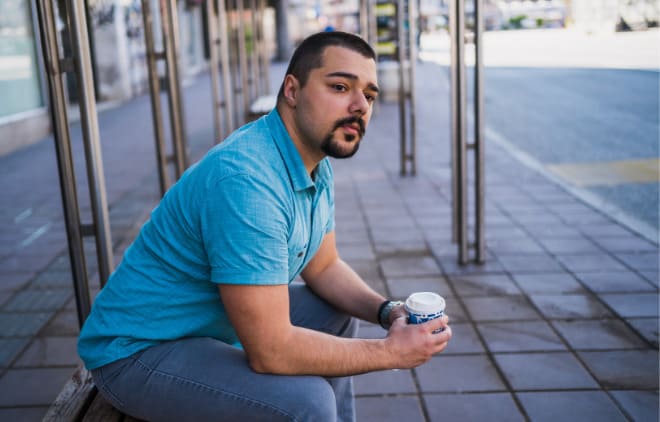Which road should you take?
Your relative got an approved petition for a family visa! So, what’s next?
The visa beneficiary, depending on their current location, the family preference category of the petition, and their immigration history, will need to complete one of these two processes:
- Adjustment of status: if they are currently present in the U.S. and fulfill all the requirements.
- Consular processing: if they need to get the visa through an embassy or consulate in their home country. Consular processing is necessary if they are living abroad or do not fulfill the requirements for an adjustment of status while in the U.S.

Here are some key factors to consider for each option:
Adjustment of Status:
Can you get your Green Card without leaving the country?
The beneficiary of a family petition currently in the United States may be eligible for Adjustment of Status (obtaining a green card without leaving the United States) if these requirements are met:
- Legal entry: the beneficiary must have been Inspected and Admitted or Inspected and Paroled;
- Relationship to the petitioner: the qualifying relationship to the petitioner still exists;
- No applicable bars to adjustment: the petitionary should not have any bars that will prevent them from adjusting their status;
- Admissible: the beneficiary fulfills the criteria to be admissible or is eligible for a waiver of inadmissibility; and
- Merits the favorable exercise of discretion: USCIS will determine at its discretion if the adjustment of status is granted, even if the beneficiary fulfills all other requisites.
What conditions may be an obstacle to an Adjustment of Status?
Bars to adjustment
The main bars to adjustment are unauthorized employment, unlawful status (to enter or to remain in the U.S. illegally), and Failure to Maintain Status.
Some of these conditions will require the beneficiaries of preference categories to travel outside the U.S. for Consular Processing. They may also need a Waiver of Inadmissibility to return to the U.S.
However, there are some exceptions: Some beneficiaries may be exempt from these bars to adjustment. Exceptions include immediate relatives (spouse, minor children, and parents of adult citizens), Violence Against Women Act (VAWA)-based applicants, Special immigrant juveniles (SIJS), and certain members of the U.S. armed forces, their spouses, and children.
There are specific requirements and processes to qualify for these exceptions. Consult with an immigration lawyer for additional information.
For example, the “Military Parole in Place” is an immigration benefit reserved for veterans and members of the United States armed forces. This benefit would allow their spouse, parents, and children to obtain a temporary permit, so they may remain in the U.S. while they get legal permanent status.
This temporary permit (parole in place) is given to people in the U.S. without lawful entry who are requesting it. If someone admitted to the U.S. legally overstayed their visa, they would not be eligible; however, they may qualify for Deferred Action.

Consular Processing
Family visa beneficiaries outside of the U.S., or those unable to adjust their status, must apply for their visa or green card through an embassy or consulate in their home country.
They will need to complete processing with the NVC (National Visa Center), which implies gathering documentation from both the beneficiary and the petitioner and submitting it through CEAC (Consular Electronic Application Center). The last phase includes a medical examination with a panel physician and attending an interview where you must present all the backup documents.
Here is a quick overview of the steps for Consular Processing:
Phase One: Start the process
- Receive the NVC welcome letter (National Visa Center)
- Log in to the Consular Electronic Application Center (CEAC)
- Pay application Fees
- Fill out the online application and print the confirmation
Phase Two: Gather and submit the Documents
- Beneficiary Civil Documents
- Affidavit of Support
- Petitioner or Sponsor Documents
- Scan all documents and upload them to CEAC
Phase Three: The Interview
- Get the medical examination
- Register online (if required)
- Attend your interview and bring all your documents
- Wait for a resolution
Recommendations for a smooth process
- Check and check again: a tiny mistake can delay the entire process.
- Details: pay attention to detailed instructions, such as the format and size of the requested documents.
- When in doubt, the best option is to seek professional advice from an immigration attorney.
Special considerations: inadmissibility and bans for unlawful presence
The beneficiary of a family visa petition may be considered inadmissible or be subject to a ban for unlawful presence. In this case, a waiver of inadmissibility may be necessary for them to return to the U.S.
If you are currently in the United States and go abroad to attend an interview at a U.S. Embassy or Consulate you may trigger a ban of inadmissibility for unlawful presence, despite a family petition approved for you.
Who needs a waiver of inadmissibility?
You will be inadmissible if you have been in the United States without authorization for more than 180 days (3 years ban) or more than one year (10 years ban).
Re-entry into the U.S. without permission after being declared inadmissible creates a permanent ban.
If you step out of the United States without a waiver, you trigger the ban and cannot return. You will either need to wait out the three or ten-year period or request a waiver of inadmissibility and wait for the result outside the United States.
How can you request a waiver?
File an I-601A Application for Provisional Unlawful Presence Waiver. Among other specifications, you will need evidence to support a claim of extreme hardship to your U.S. citizen or Legal Permanent Resident spouse or parent.
You should apply for a Provisional Unlawful Presence Waiver once the family petition filed by your relative is approved (Form I-130), you have paid the immigrant visa processing fee, and you have an immigrant visa case pending with the Department of State (DOS).
If you need a Provisional Unlawful Presence Waiver or believe you may be inadmissible, consult an immigration lawyer for advice before you step out of the country.!!!
Remember, every immigration story is different.
An immigration lawyer can help you understand your options based on the details of your case and current immigration law.
At Armstrong Legal, we would love to hear about your personal immigration story, guide you through the process and accompany you on the way.
Our office is in Dallas, Texas, but we also offer telephone and virtual consultations. Call us at (469) 844-0020 and schedule a consultation. We will be happy to help!











